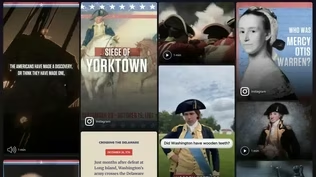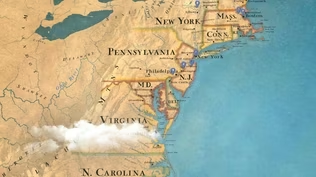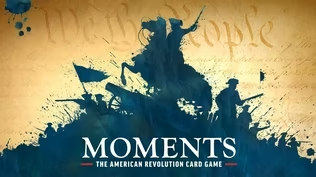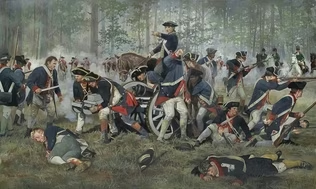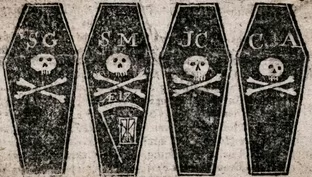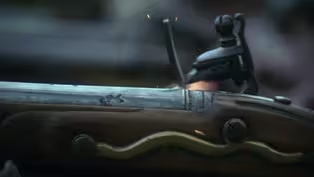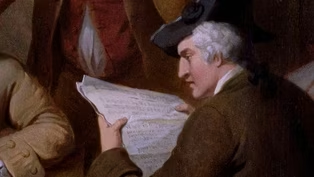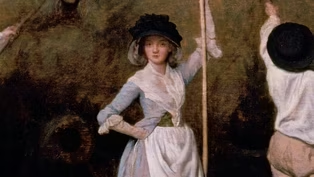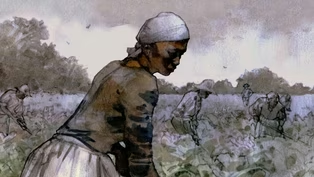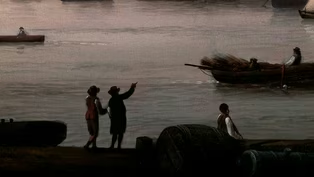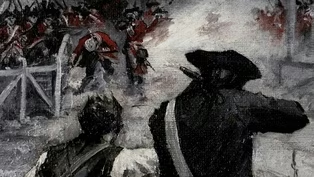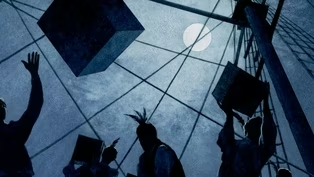
Episode 1: Introduction
Clip: Episode 1 | 9m 39sVideo has Closed Captions
The American Revolution will be a war that will pit brother against brother – and birth a nation.
The American Revolution will become not just a local war for independence, but a war between great nations that stretches around the globe. It would also be a savage war that would pit brother against brother. Despite all of the bloodshed, the American Revolution would also be the founding event that would change the course of history.
Problems playing video? | Closed Captioning Feedback
Problems playing video? | Closed Captioning Feedback
Episodes presented in 4K UHD on supported devices. Corporate funding for THE AMERICAN REVOLUTION was provided by Bank of America. Major funding was provided by The Better Angels Society and...

Episode 1: Introduction
Clip: Episode 1 | 9m 39sVideo has Closed Captions
The American Revolution will become not just a local war for independence, but a war between great nations that stretches around the globe. It would also be a savage war that would pit brother against brother. Despite all of the bloodshed, the American Revolution would also be the founding event that would change the course of history.
Problems playing video? | Closed Captioning Feedback
How to Watch The American Revolution
The American Revolution is available to stream on pbs.org and the free PBS App, available on iPhone, Apple TV, Android TV, Android smartphones, Amazon Fire TV, Amazon Fire Tablet, Roku, Samsung Smart TV, and Vizio.
Buy Now
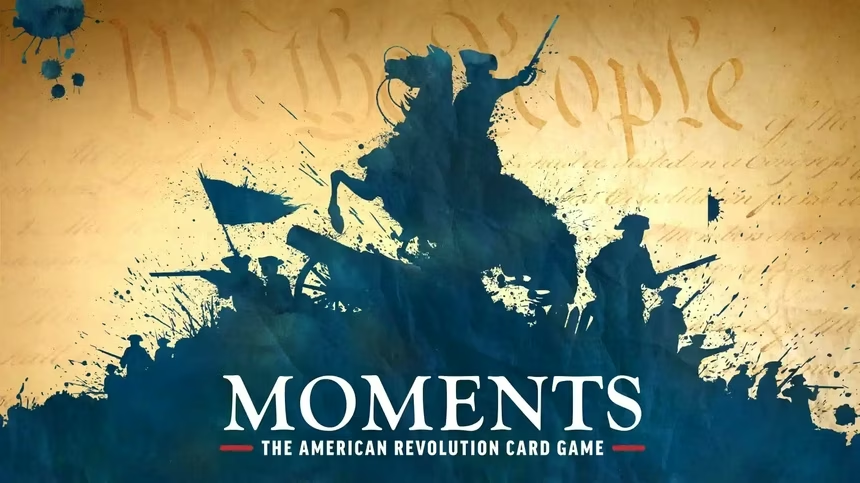
MOMENTS: The Revolutionary War Card Game
Use your knowledge of Revolutionary-era moments to build a timeline of real historical events.Providing Support for PBS.org
Learn Moreabout PBS online sponsorship♪ Voice: From a small spark, kindled in America, a flame has arisen not to be extinguished.
Without consuming, it winds its progress from nation to nation, and conquers by a silent operation.
Man finds himself changed and discovers that the strength and powers of despotism consist wholly in the fear of resisting it, and that, in order to be free, it is sufficient that he wills it.
Thomas Paine.
[Explosion] [Drum beating slow rhythm] Voice: We know our lands are now become more valuable.
The White people think we do not know their value, but we are sensible that the land is everlasting.
Canasatego, Spokesman for the Six Nations.
[Woman singing in Native American language] Narrator: Long before 13 British colonies made themselves into the United States, the Six Nations of the Iroquois Confederacy-- Seneca, Cayuga, Onondaga, Tuscarora, Oneida, and Mohawk-- had created a union of their own that they called the Haudenosaunee-- a democracy that had flourished for centuries.
Voice: We heartily recommend union.
We are a powerful confederacy.
And by your observing the same methods our wise forefathers have taken, you will acquire fresh strength and power.
Therefore, whatever befalls you, never fall out one with another.
[Canasatego] ♪ Narrator: In the spring of 1754, the celebrated scientist and writer Benjamin Franklin proposed that the British colonies form a similar union.
He printed a cartoon of a snake cut into pieces above the dire warning "Join, or Die."
A few weeks later at Albany, New York, Franklin and other delegates from 7 colonies agreed to his Plan of Union-- and then went home to try and sell it.
But when the plan was presented at the colonial capitals, each of the individual legislatures rejected it because they did not want to give up their autonomy.
[Cannonfire] The plan died, but the idea would survive.
20 years later, "Join, or Die" would be a rallying cry in the most consequential revolution in history.
♪ Voice: We are in the very midst of a revolution the most complete, unexpected, and remarkable of any in the history of nations.
Objects of the most stupendous magnitude, and measures in which the lives and liberties of millions yet unborn are intimately interested, are now before us.
John Adams.
[Explosion] Narrator: The American Revolution was not just a clash between Englishmen over Indian land, taxes, and representation, but a bloody struggle that would engage more than 2 dozen nations, European as well as Native American, that also somehow came to be about the noblest aspirations of humankind.
It was fought in hundreds of places, from the forests of Quebec to the backcountry of Georgia and the Carolinas; from the rough seas off England, France and in the Caribbean, to the towns and orchards of Indian Country.
[Gunshots] The fighting would take place on roads and in villages and cities; by woods and fields, and along waterways with old American names: the Susquehanna, the Tennessee, and the Ohio; the Oriskany, the Catawba, and the Chesapeake; and along waters with newer names: the Charles, the Hudson, and the Schuylkill; the Brandywine, the Cooper, and the Ashley; and finally the York.
The war grew out of a multitude of grievances lodged against the British Parliament by British subjects living an ocean away in 13 otherwise disunited colonies.
It was also a savage civil war that pitted brother against brother, neighbor against neighbor, American against American, killing tens of thousands of them.
[Gunfire] Voice: However great the blessings to be derived from a revolution in government, the scenes of anarchy, cruelty, and blood, which usually precede it, and the difficulty of uniting a majority in favor of any system, are sufficient to make every person who has been an eyewitness recoil at the prospect of overturning empires.
Abigail Adams.
Narrator: The American Revolution was the first war ever fought proclaiming the unalienable rights of all people.
It would change the course of human events.
♪ Man: It's our creation myth, our creation story.
It tells us who we are, where we came from, uh, what our forebears believed, and, and, and what they were willing to die for.
That's the most profound question any people can ask themselves.
Woman: What the American Revolution gave the United States was an actual idea of a moment of origin, which many other countries in the world don't have.
And it has invested these particular years of these particular people with a set of stakes that are so far beyond what any set of events and any set of people can plausibly carry that it has made the way that Americans think about this period very unreal and detached.
Man: One of the most remarkable aspects of the Revolutionary War is that you had such different places come together as one nation.
I'm not sure there is a state, anywhere in the world, in the late 18th century, that has as wide variety of people who inhabit it, um, and so, it really is actually kind of remarkable, the way that that nation ends up cohering, not around culture, not around religion, not around ancient history.
It was coming together around a set of purposes and ideals for one common cause.
[Soldier shouting orders] Voice: Events like these have seldom, if ever before, taken place on the stage of human action.
For who has before seen a disciplined army formed from such raw materials?
Who that was not a witness could imagine that men who came from the different parts of the continent, strongly disposed to despise and quarrel with each other, would become but one patriotic band of brothers?
George Washington.
♪ [Gunfire]
Video has Closed Captions
Clip: Ep1 | 7m 52s | A bloody clash between Bostonians and the British army leaves five dead in the Boston Massacre. (7m 52s)
Video has Closed Captions
Clip: Ep1 | 43s | A single shot echoes on Lexington Green, and the American Revolution begins. (43s)
Video has Closed Captions
Clip: Ep1 | 50s | A spark ignites—quiet, unstoppable. What follows changes everything. (50s)
How Land, Taxes and Rebellion Sparked the American Revolution
Video has Closed Captions
Clip: Ep1 | 7m 28s | The Stamp Act and taxes on American colonists lead to unrest and threaten to cause a revolution. (7m 28s)
How the Townshend Acts Fueled a Resistance Movement
Video has Closed Captions
Clip: Ep1 | 3m 11s | When the British imposed new taxes, women joined the Resistance Movement by the thousands. (3m 11s)
Liberty for Whom? Slavery, Protest and the Ideals of the Revolution
Video has Closed Captions
Clip: Ep1 | 7m 32s | The revolutionary ideals of liberty spread across the colonies while many suffer from enslavement. (7m 32s)
Rising Tensions Didn't Keep European Settlers from Coming to North America
Video has Closed Captions
Clip: Ep1 | 2m 56s | Thousands poured down the Great Wagon Road, eager to start a new life in North America’s interior. (2m 56s)
The Shot Heard ’Round the World: Lexington, Concord and the Start of War
Video has Closed Captions
Clip: Ep1 | 11m 39s | Tensions erupt as colonists confront the British Army at Lexington and Concord, beginning the war. (11m 39s)
Tea, Tar and Tyranny: How the Boston Tea Party Changed Everything
Video has Closed Captions
Clip: Ep1 | 9m 26s | Bostonians protest the newly passed Tea Act by dumping 46 tons of tea into the Boston Harbor. (9m 26s)
Providing Support for PBS.org
Learn Moreabout PBS online sponsorshipSupport for PBS provided by:
Episodes presented in 4K UHD on supported devices. Corporate funding for THE AMERICAN REVOLUTION was provided by Bank of America. Major funding was provided by The Better Angels Society and...

